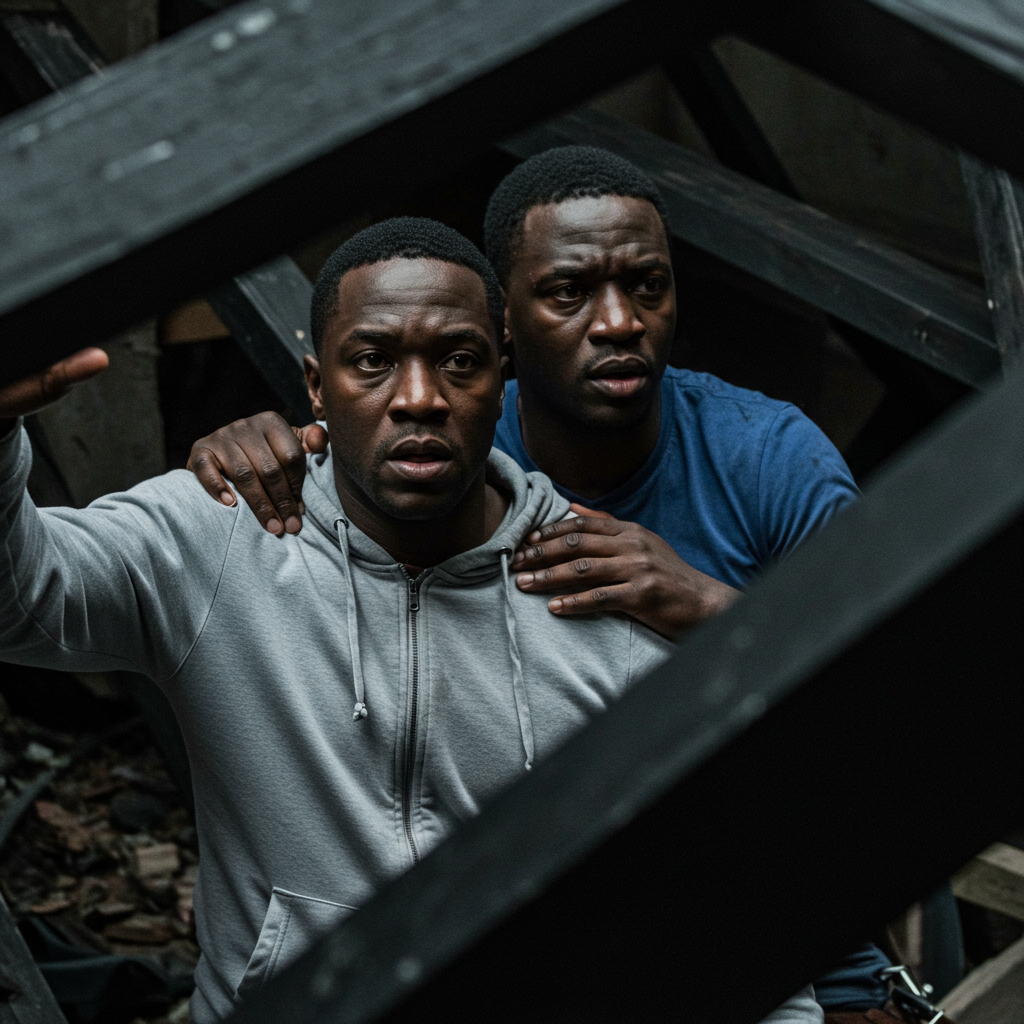FX’s acclaimed culinary drama, “The Bear,” recently served up its fourth season, plunging viewers back into the high-pressure world of Carmy Berzatto and his evolving Chicago kitchen crew. This Emmy-winning series, celebrated for its raw portrayal of restaurant life, personal trauma, and chaotic intensity, continues to follow the journey of Carmy (Jeremy Allen White), Sydney Adamu (Ayo Edebiri), and the dedicated team as they strive to transform their modest sandwich shop into a high-end dining destination. Season 4 doubles down on the familiar struggles: financial strain, complicated family dynamics, and relentless communication breakdowns, all underscored by the immense task of elevating The Bear restaurant. But does this latest installment maintain the show’s sharp edge and compelling narrative, or does it leave viewers questioning if the heat has become too much to bear?
Following a third season that sparked debate among fans regarding its direction and the sheer volume of stress it presented, The Bear Season 4 arrived facing significant expectations. Many wondered if the show could sustain its acclaimed intensity or if the constant pressure cooker environment was nearing its narrative limit. Critics and audiences alike debated the season’s effectiveness and its implications for the series’ future. Is the show still a must-watch? Or, as some reviews suggest, has it hit a “dead end”? This analysis delves into the season’s key plot points, character developments, and critical reception to help you decide.
Navigating the Pressure Cooker: Season 4’s Core Challenges
Season 4 immediately reinforces the stakes, particularly with the introduction of a literal financial countdown clock. Imposed by Uncle Jimmy (Oliver Platt) and advisor Computer (Brian Koppelman), this device marks the remaining time for the restaurant to achieve profitability and prove its sustainability. The goal is clear: secure a high star rating and financial stability within a tight two-month window. This ticking clock aims to inject urgency into the narrative, reflecting the real-world pressures of the restaurant industry.
However, despite the high stakes and the visual representation of time running out, some viewers and critics felt the sense of urgency paradoxically failed to fully materialize. The season, while packed with micro-dramas, was perceived by some as lacking a clear, driving narrative propulsion directly tied to the countdown. This disconnect contributed to concerns about pacing and narrative focus throughout the ten episodes.
Character Journeys and Perceived Stagnation
A pivotal development arrives late in the season: carmy’s contemplation of stepping back from The Bear and possibly the restaurant world altogether. This move is significant, signaling a potential shift away from the intense focus on his singular vision and personal demons. The narrative suggests this decision feels earned because The Bear has evolved beyond Carmy; it represents a collective ambition. A poignant scene highlighting this shift shows Carmy’s sister and business partner, Sugar (Abby Elliott), addressing the staff as “Bears!” after pastry chef Marcus (Lionel Boyce) receives recognition, echoing Carmy’s earlier sentiment about community in the kitchen.
Yet, Carmy’s journey this season also drew criticism. For some, his emotional struggles felt repetitive, stuck in a “pointless loop” of anxiety and self-sabotage without significant forward movement. While others argued this reflects the reality of grappling with deep-seated trauma, this perceived stagnation was a point of frustration. His potential “retirement,” however, is seen as a necessary narrative catalyst that could finally open new avenues for the show.
Sydney’s arc remains central. She continues to support Carmy and the team while wrestling with her own ambitions, particularly a compelling offer from rival chef Adam Shapiro. Her dilemma highlights the tension between loyalty to the chaotic but beloved team and the desire for professional growth in a potentially less turbulent environment. Critics praised Ayo Edebiri’s performance for capturing this internal conflict, portraying Sydney’s frustration with Carmy’s inaccessibility and high anxiety amidst her own aspirations. The season explores her internal debate between seeking creative freedom and valuing the hard-won friendships at The Bear.
Other characters, including Tina (Liza Colón-Zayas) and Marcus, while integral to the team, had storylines some found less developed or satisfying compared to previous seasons. Marcus’s journey, often tied to channeling grief into his work, felt stagnant to some, contributing to the overall sense of certain characters not moving forward.
Plot Devices and Narrative Pace
The aforementioned countdown clock, while conceptually interesting, inadvertently highlighted perceived issues with the season’s pacing. Questions arose regarding the passage of time within the show’s narrative – had Sydney’s career consideration or Carmy’s on-again-off-again relationship with Claire (Molly Gordon) been unfolding over months, or did the storytelling make it feel protracted? Viewers accustomed to clearer timeline markers found the ambiguous chronology confusing.
Adding to the narrative critiques, some felt the central conflict of achieving profitability by the deadline was sometimes undermined by character actions. Carmy’s initial resistance to simplifying the menu, despite the ticking financial clock, frustrated those who expected a more pragmatic, focused approach to the business challenge given the existential threat. This tension between artistic vision and business reality, while thematic, felt narratively inconsistent to some.
Deep Dives and Thematic Layers
Season 4 excels in its signature move of dedicating episodes to individual characters, offering crucial insights outside the main kitchen drama. Episode 4, centered on Sydney, is widely highlighted as a success. Her visit with friend/cousin Chantel (Danielle Deadwyler) and a babysitting experience provided a poignant metaphor for her career decision – using the choice between “slumber parties” to represent staying at The Bear versus exploring opportunities elsewhere. This sequence effectively illuminates her complex dynamic with Carmy and her decision-making process.
The season continues to weave in subtle, potentially thematic elements. Carmy watching “Groundhog Day” could symbolize his feeling trapped in repetitive personal and professional cycles. Sydney viewing “Jumpin’ Jack Flash,” featuring a competent Black woman aiding a White man, might reflect her role in supporting Carmy, adding a layer of complexity to their working relationship. While some might find these references “on the nose,” they invite deeper interpretation of the characters’ internal states and struggles.
Communication breakdowns remain a core theme. Carmy’s inability to articulate his needs and desires fuels significant conflict, culminating in a necessary confrontation with Sydney in the finale. However, the season also shows progress in this area. Characters begin finding their voices: Dee Dee (Jamie Lee Curtis), Carmy’s mother, expresses love she hadn’t before; Carmy offers thanks and acknowledges Claire’s positive qualities; and Sugar reconciles with her childhood friend Francine Fak (Brie Larson), addressing a long-standing rift.
Balancing Intensity with Levity
Notable guest appearances punctuate the season, adding texture and potential future plotlines. Bob Odenkirk returns as Dee Dee’s boyfriend, Lee. Rob Reiner appears as a consultant hired to leverage the sandwich window’s success, setting up potential comedic and business conflict with Uncle Jimmy.
Some viewers missed the show’s earlier comedic leanings, noting a significant shift towards more serious drama. While Richie (Ebon Moss-Bachrach) has transformed into a more refined front-of-house professional, glimpses of his former playful energy surface, particularly during the wedding episode. There’s hope that Carmy’s potential departure might allow Richie and others space to reclaim some of their earlier, more humorous dynamics. Moments of camaraderie, Richie’s playful jab at Marcus, and the comic relief from the Fak family provide welcome breaks. Sydney’s panic dream, styled as a surreal cooking show, offers character-driven unexpected humor.
The Verdict: Does The Bear Season 4 Justify Continuing?
The central question lingering after Season 4 is whether “The Bear” still warrants viewers’ investment, or if this chapter offered a natural, albeit stressful, point of departure. The season arguably leans heavily into the idea of artistic creation and personal growth being tied to struggle and even suffering. However, as some point out, great outcomes can also stem from joy and genuine collaboration. Sydney’s initial vision for The Bear wasn’t solely about Michelin stars; it was about creating a positive environment where the food and the people weren’t “shitty.”
Season 4 closes with the possibility of this vision finally taking shape. With Carmy potentially stepping back to address his personal issues, the remaining team members might find the space needed to build a restaurant that is not only critically acclaimed and profitable but also fosters a healthier, perhaps even more joyful, environment for its staff. The decision to continue watching likely depends on whether viewers believe the show can successfully navigate this potential new phase, finding a compelling balance between the realistic portrayal of struggle and the hope for positive growth the characters (and the audience) might yearn for. While some critics found it a “dead end,” others see potential for transformation.
Frequently Asked Questions
Why did Carmy consider leaving The Bear in Season 4?
In a significant turn towards the end of The Bear Season 4, Carmy Berzatto contemplates leaving the restaurant and potentially the culinary industry entirely. This stems directly from his intense, ongoing struggles with personal issues, including past trauma, anxiety, and significant communication challenges. The immense pressure of running a high-stakes kitchen environment exacerbated these mental health issues. The season depicts him realizing the heavy toll the kitchen environment takes on him, prompting him to prioritize working on his own well-being, even if it means stepping away from his passion project.
What were some key criticisms regarding The Bear Season 4’s direction?
The Bear Season 4 faced criticism from some viewers and critics who felt the show’s direction led to perceived stagnation, particularly with Carmy’s character arc, which some found repetitive. Despite plot devices like a financial countdown clock designed to create urgency, some felt a lack of narrative drive and inconsistent pacing. Reviews noted that the season sometimes felt lost in a “pointless loop,” focusing heavily on character personalities over the core business challenge, and that plotlines like the Carmy-Claire romance felt stretched. Some argued the show needed to move beyond its intense focus on Carmy’s misery to explore other characters and themes more effectively.
Is The Bear Season 4 worth watching if I found prior seasons too stressful?
Deciding whether to watch The Bear Season 4 if you found previous seasons overly stressful is subjective. The season maintains the show’s signature intensity, featuring rapid-fire dialogue, chaotic kitchen scenarios, and deep dives into character dysfunction. However, it also includes moments of significant character development, therapeutic breakthroughs, and subtle humor. The central question of whether the show remains compelling despite the stress is key. If you appreciate nuanced character studies and a realistic (though heightened) look at industry pressures, it may still be rewarding. If the stress is a major deterrent, be aware Season 4 continues much of that established tone, although the ending hints at a potential future shift towards healthier dynamics.
The Bear Season 4 provided a complex, sometimes challenging, but undeniably significant chapter for the FX series. It pushed characters to breaking points, tested the audience’s tolerance for recurring struggles, and blurred the lines between comedy and intense drama. With Carmy’s potential departure setting the stage for new narrative possibilities, the show stands at a crucial crossroads, leaving viewers to ponder the future of The Bear restaurant and its uniquely resilient, beautifully messy team.
Word Count Check: 1183


